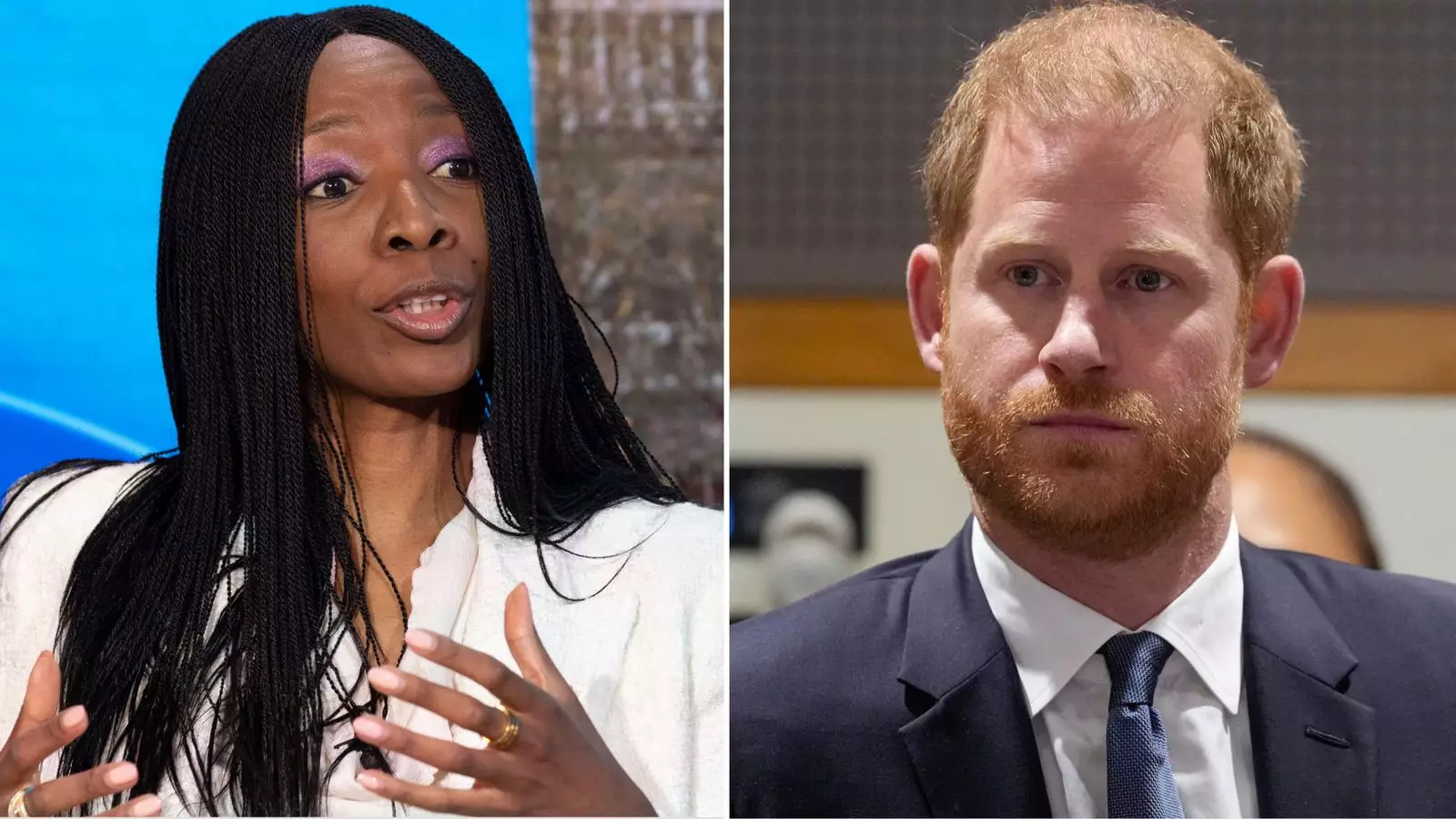The recent fallout involving Prince Harry and the charity he co-founded, Sentebale, reveals a messy and perhaps sordid drama that’s more about personal ego than philanthropy. Dr. Sophie Chandauka, chair of the organization, has voiced alarming accusations against the Duke of Sussex, calling his actions nothing short of “harassment and bullying at scale.” This isn’t just a simple resignation; it’s a startlingly public affair that exposes the fissures within what was designed to be a bastion of hope for children and young people battling severe challenges in southern Africa.
Chandauka’s claims provide a window into the toxic dynamics often present in charity organizations where power and public personas clash. Her assertion that Prince Harry orchestrated a smear campaign highlights an ugly truth: even charitable endeavors can be poisoned by ambition and pride. What was once a noble mission is now overshadowed by ego-driven conflicts. In an era where personal brands reign supreme, it seems that even well-meaning individuals can lose sight of their collective purpose in pursuit of individual stature.
The Sussex PR Machine: A Double-Edged Sword
Following the allegations, it’s apparent that Prince Harry’s “Sussex PR machine” is not merely a tool for promoting goodwill but potentially a weapon for manipulating public perception. Since stepping back from royal duties, Harry and Meghan Markle have wielded their platform to challenge societal norms, but the fallout from their media engagements has occasionally resulted in collateral damage. The situation at Sentebale illustrates a compelling paradox: the same PR prowess that can generate support for worthy causes can also exacerbate interpersonal conflicts and create rifts within organizations that should be united in their mission.
Dr. Chandauka’s indictment that Harry bypassed key stakeholders before releasing damaging information doubts the integrity of their supposed collaboration. One cannot help but wonder: should a charity be run as a startup with personalities vying for media attention, or should it embody the age-old principles of altruism and collective responsibility? The choice is as stark as it is revealing, and the errors of judgment displayed in this scenario serve as a cautionary tale for leaders in all sectors.
The Emotional Toll on Stakeholders
The implications of this controversy stretch far beyond the hierarchy of Sentebale. Chandauka illuminated the emotional and psychological fallout from the allegations, stating that they affected not only herself but also the entire organization and the 540 individuals relying on its services. When charity becomes entangled with personal grievances, the real victims are often those who benefit from its existence.
Every charity’s lifeblood is its mission to serve, but when the leaders’ dramas take center stage, the vulnerable groups they aim to assist suffer the most. This brings to light an inconvenient truth: the mounting pressures from personal and public scrutiny can transform altruistic ventures into arenas of conflict, thereby diverting focus from the very issues that necessitate supportive action.
A Whistleblower’s Courage or a Cry for Attention?
Chandauka’s accusations of bullying, misogyny, and governance failures raise critical but nuanced discussions about leadership within organizations. Are her claims an act of bravery, challenging the status quo among entrenched power players? Or does her rhetoric merely cloak a desperation for notoriety in a domain where reputations are everything?
In the world of non-profits, where transparency is increasingly paramount, accountability should be demanded from all, including those who critique governance and management practices. However, we also need to apply discernment: not every whistleblower is pure in intent, and not every critique is conducted in good faith.
Dr. Kelello Lerotholi’s contrasting perspective, which notably disavows the claims made by Chandauka, reflects the contention and discord that may persist internally. His shock at the allegations underscores the potential disconnects within organizations, revealing how surface-level conduct can often mask deeper, systemic issues.
Why Emulating The Royals is No Longer Acceptable
The saga surrounding Sentebale is emblematic of the shifting paradigms of leadership and celebrity in today’s society. Individuals like Prince Harry are increasingly expected to embody not just philanthropic ideals but a certain moral character and integrity. The notion of royalty as infallible is eroding; the public’s interest in their personal lives can swiftly turn to scrutiny of their flaws.
As our expectations of leaders evolve, charity organizations must also undergo a transformation. Holding leaders accountable to a standard of conduct that matches their mission statements is essential in ensuring that the public trust remains intact. One thing is clear: the Sentebale situation is a wake-up call not just for the charity space but for all who dabble in the intersection of philanthropy and celebrity.

Leave a Reply